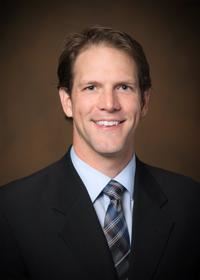From the Desk of WAO President David Nash, MD
 For patients who need eye care, they quickly find out there are several different types of specials who work together to provide eye care, most notably ophthalmologists and optometrists. As you know, the difference between ophthalmology and optometry is a common source of patient confusion. That same confusion is also common among policymakers. A key reason for their confusion stems from the fact that optometrists are often referred to as eye doctors although they do not have medical degrees.
For patients who need eye care, they quickly find out there are several different types of specials who work together to provide eye care, most notably ophthalmologists and optometrists. As you know, the difference between ophthalmology and optometry is a common source of patient confusion. That same confusion is also common among policymakers. A key reason for their confusion stems from the fact that optometrists are often referred to as eye doctors although they do not have medical degrees.
While we know ophthalmologists and optometrists frequently work together to effectively manage the long-term eye health and vision of patients, it is important for the public to recognize the difference in education and training between these eye care specialists. Education of both patients and policymakers is more important than ever as optometrists in Wisconsin and across the country continue efforts to expand their scope of practice to include laser eye surgery.
When it comes to tissues in the eye, we are talking about micrometers from one important tissue to the next. Ophthalmologists understand the room for error is small, and surgery on the eye is a specialized field of ophthalmology that requires years of advanced medical training and specialized equipment to perform. We also need policymakers in Madison to understand the concept of allowing an unqualified provider to shoot a laser in the eye is extremely troubling.
While optometrists are well-educated and critical to the collaborative eye care team, they are not trained to perform delicate surgical procedures, including laser surgeries. Optometrists can work alongside ophthalmologists to provide comprehensive eye care, including pre- and post-operative care for patients undergoing laser surgery, but they should not perform the procedure themselves.
As we watch other states across the country expand their optometric scope of practice laws to specifically include certain office-based laser procedures for glaucoma and post-cataract care, I am thankful the WAO has a robust government affairs program committed to securing policies at the state level that preserve patient safety and encourage the delivery of high-quality medical care.
The optometrist “scope creep” challenge we currently face is not likely to go away anytime soon, but the WAO is highly focused on the issue, and we will keep members update on any new developments.